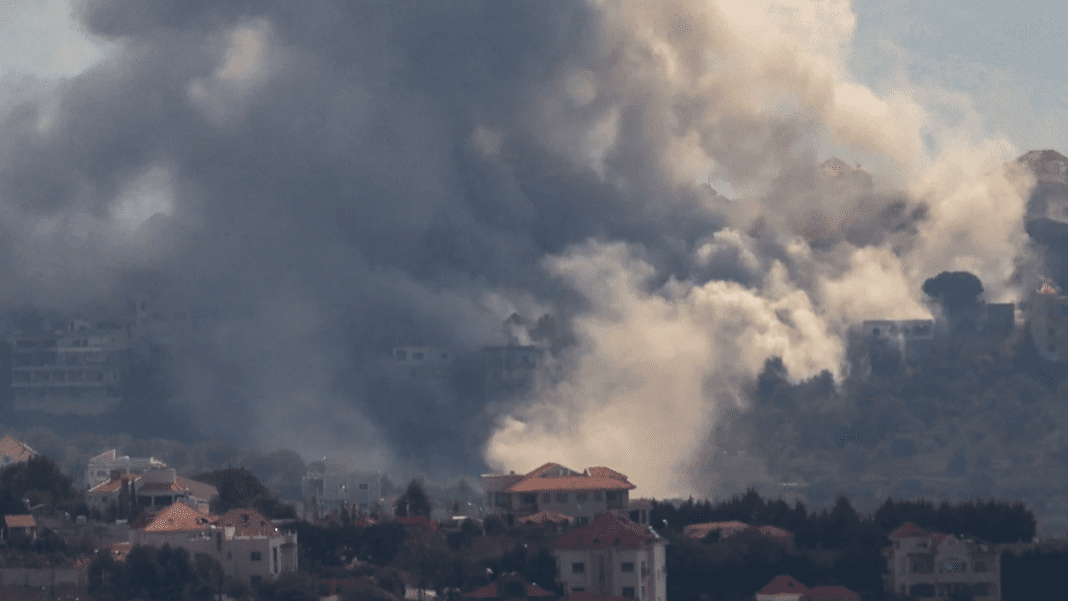Yemen’s Armed Forces have announced new strikes against Israeli sites in their latest Pro-Palestinian Operations. According to their statement, the forces targeted two sensitive locations. One was east of the holy city of al-Quds, while the other was in the port city of Haifa.
Pro-Palestinian Operations Intensify with New Strikes
The strikes were carried out using two different weapons. The first target was hit with a Palestine-2 hypersonic ballistic missile. The second was struck by an explosive drone. Both attacks were described as successful by the forces.
The servicemen explained that the hypersonic missile strike caused panic in occupied areas. Thousands of people were forced into shelters as alarms sounded. The use of advanced missile technology highlights how these Pro-Palestinian Operations are being carried out with precision.
Gaza for Sale? U.S. May Trade Frozen Libyan Funds for Relocation of Over 1 Million Palestinians
Weapons and Symbolic Timing in Pro-Palestinian Operations
The Yemeni side confirmed that the operations were not random but timed with significance. The attacks took place on the eve of the birth anniversary of Prophet Muhammad (PBUH). This was highlighted as a symbolic moment chosen to connect faith with resistance.
In their statement, the servicemen emphasized that their actions were guided by the Prophet’s teachings. They recalled his instructions for Muslims to support the oppressed and to stand against enemies. The statement described him as a leader who united people into a single community, leading them to strength and victory.
🧨 Sanctions vs. statehood: U.S. blocks Palestinian officials, sparks diplomatic uproar
The weapons used in the strikes have also drawn attention. Hypersonic missiles, like the Palestine-2, can travel at very high speeds, making them difficult to intercept. Drones, on the other hand, can be packed with explosives and guided toward specific targets. The use of both in one operation shows a mix of modern warfare tools being deployed.
These tactics have allowed Yemeni forces to strike deep inside Israeli-controlled areas despite the distance. Reports confirm that the attacks achieved their objectives, creating both physical and psychological effects. Such weapon use demonstrates the scale of Pro-Palestinian Operations being carried out.
Broader Campaign Against Israel
The recent strikes are part of a larger campaign. Since October 2023, when Israel began its war on Gaza, Yemeni forces have stepped up attacks in solidarity with Palestinians. They have targeted military, economic, and strategic sites in the occupied territories as part of ongoing Pro-Palestinian Operations.
According to their statements, these strikes are meant to pressure Israel to end its assault on Gaza and lift the blockade. Gaza has been under near-total blockade for years, and the war has only intensified the restrictions. Since the conflict began, more than 63,700 Palestinians have lost their lives. Most of the victims have been women and children.
Yemeni forces claim to have carried out hundreds of Pro-Palestinian Operations since the war began. They have struck a variety of targets and have also imposed a naval blockade. This blockade has hit Israel’s economy by restricting maritime routes. Additionally, Yemeni aerial strikes have affected air traffic, forcing many airlines to suspend flights to Israeli-controlled areas.
China Opposes U.S.-Backed Plan for Palestinian Displacement, Citing Hidden Strategic Goals
The latest attacks on al-Quds and Haifa add to this campaign. Both cities are considered highly important for strategic and symbolic reasons. Strikes in these areas highlight the reach and determination of Yemeni forces engaged in Pro-Palestinian Operations.
The servicemen have pledged to continue their operations until the war in Gaza ends and the blockade is lifted. Their statements stress ongoing solidarity with Palestinians and resistance to Israeli actions.
The repeated strikes and blockades have made an impact on daily life in the occupied territories. Panic, shelter alarms, and disruptions to travel have become common. These actions have shown that the conflict in Gaza has expanded far beyond its borders, drawing in other forces in the region through continued Pro-Palestinian Operations.

